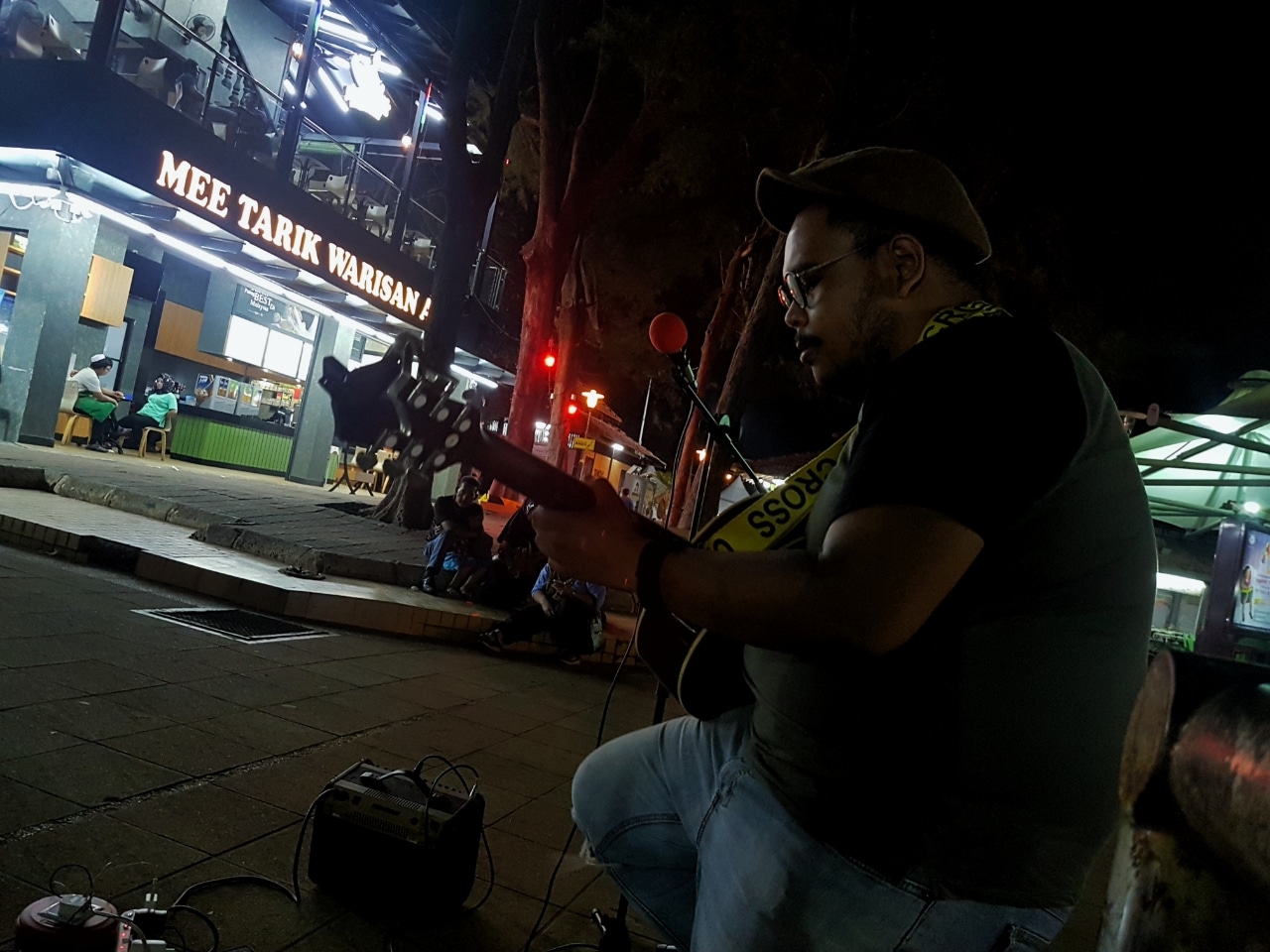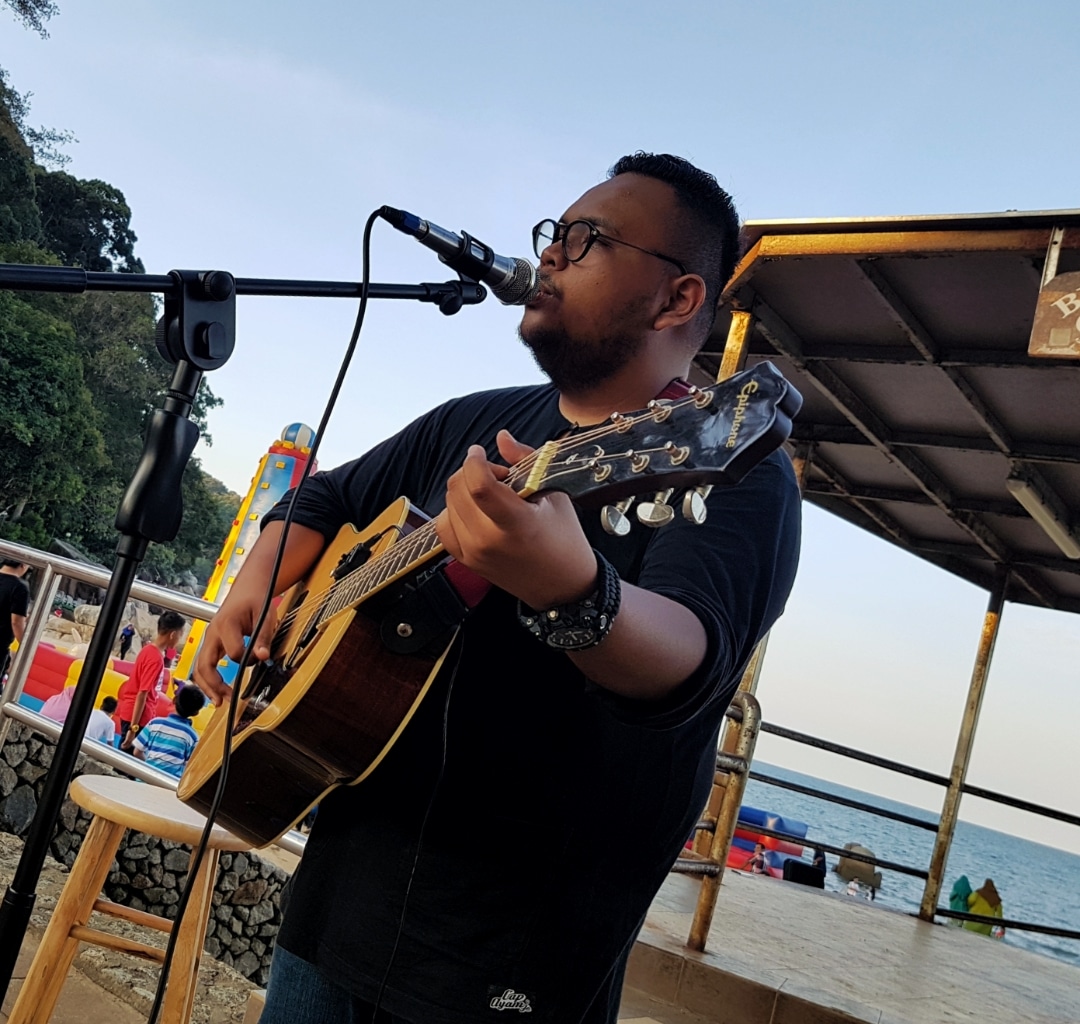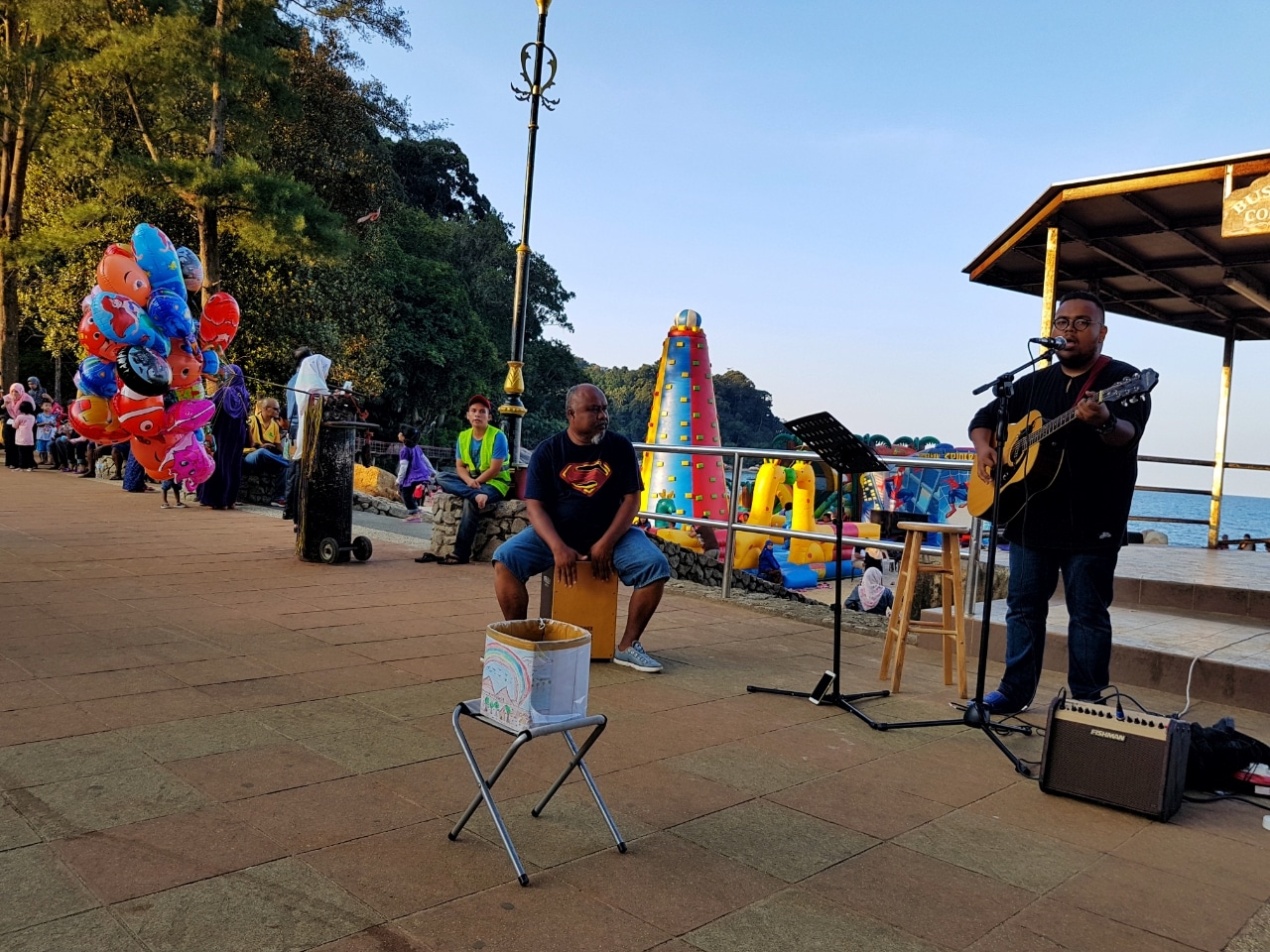Busking for a drunk audience is fantastic!” Kamal commented one night as we were counting up the money in our hat. “In Malaysia, nobody drinks because of the Islamic religion. They give money, but not like they do in Australia. Drunk people are so generous!
[dropcap]I[/dropcap] met Kamal in 2015 when we were both busking on the Gold Coast in Australia. He’s a young Malaysian singer/songwriter with a quirky sense of humor and a crooner’s voice. We teamed up for a week, playing rock standards and Bob Marley songs for crowds of drunk Aussies on the Surfer’s Paradise club strip. Playing with Kamal was great fun, and we made decent money too.
When Kamal went home we kept in touch, and when he invited me to come to Malaysia and play music with him again, I didn’t hesitate.

Kamal busking in Malaysia. Photo credit: Emmanuel Marshall.
Malaysia: 2017
“If the cops saw a busker playing music on the street they would make us go away or even beat us. Busking used to be seen as just a kind of begging. It was a low-class, haram thing to do. If you played music on the street people would assume you were very poor, maybe homeless…”
As soon as I arrive in Malaysia, Kamal and I are jamming. This is a guy who busks five nights a week. It’s his full-time gig to pay the rent.
“Remember when we were busking on the Gold Coast, in Australia?” Kamal asks me. “How we got harassed by the police and security guards? Well, that used to happen in Malaysia too. But now busking is seen very differently here; it’s super trendy!”
While we’re talking, Kamal and I are setting up our microphones and little portable amps. It’s a busy Thursday morning in ‘Avenue K’, one of Kuala Lumpur’s most popular shopping malls; crowds of people are window shopping, chatting in cafes and milling around the escalators that lead to the subway platform.
“Five or six years ago,” Kamal says, “if the cops saw a busker playing music on the street they would make us go away or even beat us. Busking used to be seen as just a kind of begging. It was a low-class, haram thing to do. If you played music on the street people would assume you were very poor, maybe homeless.”
“Seems like the situation has changed though,” I comment, “I mean, look at this; people are already stopping and waiting for us to play. It seems really positive.”
…the lights came up and instead of the famous band on stage, it was this group of unknown buskers. The audience went crazy. At first, everyone was just confused but soon people were impressed that these guys could play and sing as well as the famous rock stars
“What happened is that a few years ago there was this big singing competition on Malaysian TV. One of the most famous bands in the competition – ‘Mojo’ – had an argument with the TV producers, right before the grand final of the competition, and they quit the show. The producers were in a panic, of course, wondering how they would do the finale of the show without the most popular band. They all thought the show was doomed, but apparently, one of the production assistants was walking to work one morning and heard a group of buskers playing Mojo’s songs on the street, and had a crazy idea of how to save the finale. She explained her idea to her bosses and they decided to do it.
“What was the crazy idea?”
“What they did was; they brought these buskers in to play in the finale, instead of Mojo, the famous rock band. When the finale episode of the show began all the lights were dimmed and the audience just heard the familiar notes of Mojo’s hit song. But as the singer’s voice was heard, the lights came up and instead of the famous band on stage, it was this group of unknown buskers. The audience went crazy. At first, everyone was just confused but soon people were impressed that these guys could play and sing as well as the famous rock stars. After they finished the song, the hosts explained who these guys were – that they were street performers – and then the audience was really amazed. That episode of the show went viral on social media, and that one event just changed the way Malaysians think about busking. It became a huge trend. It’s great for us. Now everyone wants buskers to play at their parties and weddings. We’re the latest hip fad. That’s the power of media, right? It can change the whole culture.”
We finish setting up our gear and play our set. It is a really great experience. We play traditional style Malay songs, Chinese songs, and American pop music. People are really interested and supportive, and of course, the girls are charmed by Kamal’s sweet voice. They stop to take photos of us as we play, and lots of people put money in our hat.
Now everyone wants buskers to play at their parties and weddings. We’re the latest hip fad.
Kamal is on a high after the session.
“Sometimes when I have experiences like this I think about moving to Australia and busking there again,” Kamal tells me. “It would be really good for my career. But… I’m a Malaysian country boy. I don’t even like living in KL; maybe I can’t cope with Australia.”
“Australian cities are kind of like country towns, really,” I tell him, “definitely not as crazy as Kuala Lumpur.”
Kamal looks thoughtful and smiles.
“I may just do it,” he replies. “I do miss busking in Australia.”
“So many generous, drunk people,” I remind him.
Check out Kamal singing ‘Berita Untuk Kawan.’

Photo credit: Emmanuel Marshall.




